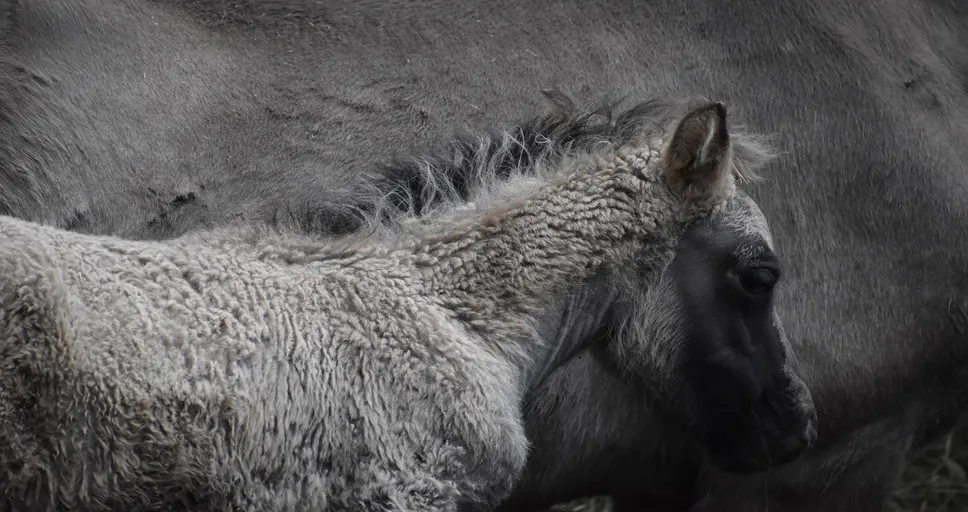Ever wondered how do French bulldogs breed? These charming little clowns of the dog world have a few tricks
- Artificial Reproduction: Most French Bulldogs require artificial insemination and cesarean deliveries due to their narrow hips and large head size.
- Genetic Health Testing: Conduct comprehensive genetic testing on breeding dogs to prevent transmitting serious health issues like brachycephalic syndrome and spinal disorders.
- Ethical Breeding Practices: Ensure the well-being of both mother and puppies by providing proper veterinary care, maintaining high quality of life, and educating potential buyers about the breed’s needs.
- Monitor Health Closely: Pay close attention to respiratory function, spine and hip health, and skin and coat condition to keep breeding French Bulldogs healthy and active.
Table of Contents
- 1 How Do French Bulldogs Breed – 3 Key Considerations
- 2 3 Health Aspects to Monitor
- 3 3 Best Practices for Ethical Breeding
- 4 3 Common Challenges in French Bulldog Breeding
- 5 3 Tips for First-Time Breeders
- 6 3 Ways to Ensure Healthy Puppies
- 7 Frequently Asked Questions
- 7.1 Are French Bulldogs easy to breed?
- 7.2 Can French Bulldogs give birth naturally?
- 7.3 Should I let my French Bulldog give birth naturally?
- 7.4 Can my French Bulldog breed naturally?
- 7.5 Are French Bulldogs a difficult breed?
- 7.6 Can Frenchies deliver puppies naturally?
- 7.7 What 2 breeds make a French Bulldog?
- 7.8 How do French Bulldogs mate?
- 7.9 Are French bulldogs an easy breed?
- 7.10 Do all French Bulldogs have to be artificially inseminated?
- 7.11 Can French bulldogs have puppies on their own?
- 8 Conclusion: Moving Forward with French Bulldog Breeding
- 9 Recommended Authors For Further Reading
How Do French Bulldogs Breed – 3 Key Considerations
When it comes to understanding how do French Bulldogs breed, there are a few key considerations that every potential breeder or curious dog lover should keep in mind. It’s not all just about cute, wrinkly faces and adorable snorts; breeding these charming pooches involves a bit more nuance. So, let’s dive into the three essential factors that make breeding French Bulldogs a unique adventure.
1. Special Reproductive Challenges
French Bulldogs are notorious for their breeding challenges, primarily due to their physical structure. Their narrow hips and large heads mean that natural reproduction is often a no-go. Most French Bulldog pregnancies are achieved through artificial insemination, and deliveries almost always require a cesarean section. This is because the pups’ heads are too big to pass through the mother’s birth canal safely. This high level of human intervention means breeders need to be well-educated and extremely cautious throughout the breeding process.
2. Genetic Health Considerations
Before even considering breeding, it’s crucial to understand the genetic pool you’re working with. French Bulldogs can carry genes for certain health conditions like brachycephalic syndrome, which affects their breathing, or spinal disorders associated with their short bodies. Responsible breeders will have their breeding dogs undergo comprehensive genetic testing to ensure they are not passing on predispositions to severe health issues. This not only ensures the health of the puppies but also sustains the breed’s overall health standards.
3. Ethical Breeding Practices
Ethics play a huge role in breeding French Bulldogs. Due to their popularity and the hefty price tag their puppies can fetch, it’s tempting for breeders to overlook the best practices in favor of profit. However, ethical breeding involves prioritizing the health and well-being of both the puppies and the mother. It includes providing proper veterinary care, ensuring that breeding dogs have a good quality of life, and breeding in a manner that aims to improve the breed. Also, educating potential buyers about the breed’s needs and potential health issues is part of ethical breeding practices.
In sum, understanding how do French Bulldogs breed is crucial for anyone involved in their breeding. From the technicalities of reproduction to the moral implications, every step should be taken with care and responsibility. While it might be wrapped in a humorous tone, the welfare of these adorable dogs is no laughing matter. So, whether you’re a breeder or just a Frenchie enthusiast, keeping these considerations in mind will ensure that these dogs are bred with the love and respect they deserve.
3 Health Aspects to Monitor
Diving into the world of French Bulldog breeding? Let’s chat about something super important: the health of these adorable pups. When we think about how French Bulldogs breed, we can’t ignore the need for careful health monitoring. It’s like being a detective, but instead of solving crimes, you’re preventing health mishaps. Here are three critical health aspects you need to keep an eye on if you’re getting into the breeding game.
1. Respiratory Function
First up on our health checklist is breathing. Thanks to their cute but cramped faces, French Bulldogs often struggle with brachycephalic obstructive airway syndrome (BOAS). This isn’t just a fancy term; it means your Frenchie might have difficulty breathing, especially in hot weather or during exercise. Monitoring their respiratory function is crucial. Listen for excessive snoring, snorting, or labored breathing during rest or play. It’s not just a quirky trait; it’s a health concern that needs careful management.
2. Spine and Hip Health
Next, we’re looking at the backend of the business – literally! French Bulldogs are somewhat infamous for their spinal issues, like intervertebral disc disease (IVDD), and hip problems, such as hip dysplasia. These conditions can lead to pain, mobility issues, or even paralysis. Regular vet check-ups, X-rays, and even genetic testing can help you track the spine and hip health of your breeding dogs. Keeping an eye on this can ensure you breed puppies that are as healthy and happy as they are squishy.
3. Skin and Coat Condition
Last but not least, let’s talk about skin and coat. Those wrinkles and folds that make Frenchies so irresistibly cute? They’re also the perfect spots for bacteria and yeast to throw a party, leading to infections and dermatitis. Regular grooming and skin checks are paramount. Ensure the folds are dry and clean, and keep an eye out for any redness, itching, or unpleasant smells. A healthy coat and clear skin are good indicators that your Frenchie is in tip-top shape.
As you navigate how French Bulldogs breed and manage their health, remember these three crucial aspects. Keeping your Frenchie healthy is like keeping your car in top condition – it might require a bit of effort, but it’s totally worth it when you see them zooming around happily (and healthily)!
3 Best Practices for Ethical Breeding

Ethical breeding isn’t just a fancy buzzword in the world of French Bulldogs—it’s the backbone of responsible pet ownership. Let’s face it, figuring out how French Bulldogs breed is tricky enough without cutting corners on ethics. So, if you’re planning to dive into the breeding pool, here are three best practices to keep your moral compass pointing north and ensure your Frenchies are happy and healthy.
1. Prioritize Health Over Looks
Sure, everyone loves a Frenchie with adorable, distinctive features. However, breeding for appearance alone can lead to serious health issues. Ethical breeders focus on the overall health and well-being of the dogs rather than just how they look. This means conducting thorough health screenings and genetic testing before deciding to breed, ensuring that traits such as good respiratory function and spine health are prioritized. Remember, a healthy Frenchie is a happy Frenchie, and happy Frenchies make everything better!
2. Provide Comprehensive Care
When it comes to ethical breeding, comprehensive care is the name of the game. This includes everything from a nutritious diet and regular veterinary care to socialization and mental stimulation. French Bulldogs, with their playful and affectionate demeanor, require plenty of social interaction to thrive. Ethical breeders make sure their dogs are not just breeding machines but cherished members of the family. So, brush up on your belly-rubbing skills, because these pups will need lots of love and attention!
3. Educate Potential Owners
Finally, an ethical breeder is also a great educator. When it comes to how French Bulldogs breed, potential owners need to know what they’re getting into. This includes understanding the breed’s specific needs, potential health issues, and the responsibilities of owning a Frenchie. Ethical breeders ensure that prospective owners are well-informed about the joys and challenges of French Bulldog ownership. They also remain available to provide support and advice long after the puppies have gone to their new homes.
Adopting these practices won’t just make you an ethical breeder—it’ll make you a superhero in the eyes of your Frenchies and their happy new owners. After all, ethical breeding is all about making the world a better place, one adorable Frenchie at a time!
3 Common Challenges in French Bulldog Breeding
Breeding French Bulldogs isn’t always a walk in the park—sometimes it’s more like a hop in a puddle. But hey, who doesn’t love a good challenge? If you’re diving into how French Bulldogs breed, you’ll quickly discover it’s a blend of sweet puppy kisses and a few inevitable hiccups. Here are three common challenges you might face, served up with a side of humor, because sometimes you just have to laugh to keep from crying!
1. Overcoming Breeding Difficulties
First off, let’s talk romance—or the lack thereof. Due to their compact and quirky body shapes, French Bulldogs often struggle with natural mating. This isn’t your typical candlelit dinner scenario; it’s more of a medical procedure. Artificial insemination is frequently necessary, and it requires precise timing and professional handling. So, if you thought your dating life was complicated, try setting up a love connection for these pups!
2. Dealing with Health Issues
When it comes to health, Frenchies can be a bit high-maintenance. They’re like the divas of the dog world, prone to issues like brachycephalic syndrome, which affects their breathing, and spinal problems due to their distinctive build. Monitoring and managing these health challenges require vigilance and can often feel like a full-time job. Make sure your vet is on speed dial, because you’re going to need them more than you think!
Last but certainly not least is the ethical maze. How do French Bulldogs breed ethically, you ask? Well, it’s all about prioritizing the well-being of the dogs over profits or popularity. This means no overbreeding, maintaining high standards of care, and ensuring that each puppy is placed in a loving, suitable home. It’s a tough road, filled with moral decisions that can sometimes weigh heavier than your Frenchie after a big meal.
Navigating these challenges might seem daunting, but it’s also incredibly rewarding. You get the chance to contribute to the breed’s longevity and health, and let’s be honest, those puppy snuggles make it all worth it. So gear up, future Frenchie breeders; it’s going to be a bumpy, ridiculously adorable ride!
3 Tips for First-Time Breeders

Jumping into the world of French Bulldog breeding can feel like diving headfirst into a very cute, slightly drooly, swimming pool. If you’re puzzling over how do French Bulldogs breed and what it takes to get started, you’re in the right place. Here are three invaluable tips to guide you through your first breeding adventure. Let’s breed some Frenchies!
1. Educate Yourself Thoroughly
Before you even think about puppies, it’s crucial to hit the books (or the reputable online resources). Understanding the basics of genetics, breeding ethics, and specific breed health issues is key. French Bulldogs have their quirks, and knowing what you’re dealing with is crucial. There are plenty of breed-specific courses and certifications that can make you feel like a French Bulldog expert in no time. Remember, knowledge is power—especially when it comes to breeding responsibly!
2. Connect with Experienced Breeders
Think of seasoned breeders as your guide through the French Bulldog breeding jungle. Building relationships with experienced breeders can provide you with a wealth of knowledge and support. They can offer insights into the breeding process, help you understand the specifics of how French Bulldogs breed, and give you advice based on years of hands-on experience. Don’t be shy—most breeders love to share their knowledge, especially if it means helping puppies come into the world healthily and ethically.
3. Prioritize Health and Well-being
Your number one job as a breeder is to ensure the health and happiness of your dogs. This means regular vet check-ups, proper nutrition, and lots of love and attention. When it comes to breeding French Bulldogs, always opt for health screenings for common genetic conditions like hip dysplasia, heart disorders, and breathing problems. Yes, it can be costly and time-consuming, but it’s absolutely essential. Healthy parents are more likely to produce healthy puppies, and isn’t that the goal?
With these tips in hand, you’re better equipped to start your breeding journey on the right paw. Remember, breeding French Bulldogs—or any dog—is a significant responsibility, but it’s also incredibly rewarding. Good luck, and may your days be filled with tiny French Bulldog snuffles and wiggles!
3 Ways to Ensure Healthy Puppies
So, you’ve decided to take the plunge into the wonderful world of French Bulldog breeding. It’s like deciding to become a superhero for tiny, snorting creatures! If you’re pondering over how do French Bulldogs breed and how to ensure those little bundles are as healthy as can be, here’s your go-to guide.
1. Start with Stellar Genetics
The health of your puppies begins long before they’re even a twinkle in their parents’ eyes. Ensuring healthy puppies means starting with genetically healthy parents. This includes comprehensive genetic testing for common hereditary conditions in French Bulldogs, like heart defects, hip dysplasia, and congenital diseases. By choosing breeding pairs with clean health screenings, you’re stacking the deck in favor of having robust, healthy puppies. It’s like setting up a good genetic playlist for the next generation!
2. Provide Optimal Care for the Mother
Healthy puppies need a healthy momma. Ensuring the mother is in excellent physical and mental shape is crucial. This means regular veterinary check-ups, a nutritious diet, and plenty of exercise and affection. Stress can affect the health of both the mother and her puppies, so keeping her happy is more than just a nice-to-do—it’s a must-do. Think of it as keeping your queen bee happy so she can produce the best little buzzing bulldogs!
3. Early Puppy Care and Socialization
Once the puppies have arrived, the real work begins. Early care for French Bulldog puppies includes proper veterinary attention, starting with deworming, vaccinations, and regular health checks. But physical health is just one piece of the puzzle—social and environmental conditioning are equally important. Early socialization helps puppies grow into well-adjusted adults, capable of handling new experiences and interactions. Start socializing them by exposing them to different sounds, sights, and gentle handling. This way, they not only grow up healthy but also friendly and resilient.
Armed with these three strategies, you’re well on your way to ensuring your French Bulldog puppies are the healthiest they can be. Remember, how do French Bulldogs breed isn’t just about the physical process—it’s about a commitment to the breed and ensuring a brighter future for each puppy. Keep these tips in mind, and you’re sure to be a superhero breeder in the eyes of your pups and their future families!
- French Bulldogs require artificial insemination and cesarean sections due to their physical structure, making breeding a specialized process.
- Genetic testing is vital to ensure the health of puppies and maintain breed standards, addressing issues like brachycephalic syndrome and spinal disorders.
- Ethical breeding practices are essential, prioritizing the health and welfare of both puppies and breeding dogs.
- Health monitoring for French Bulldogs should focus on respiratory function, spine and hip health, and skin and coat condition to prevent common issues.
Frequently Asked Questions

Are French Bulldogs easy to breed?
French Bulldogs are not easy to breed and often require medical intervention such as artificial insemination and cesarean sections due to their physical structure.
Can French Bulldogs give birth naturally?
It is rare and often not recommended for French Bulldogs to give birth naturally due to the high risk of complications that can arise from their narrow hips.
Should I let my French Bulldog give birth naturally?
Due to the potential risks and complications, it is generally advised against allowing French Bulldogs to give birth naturally. Veterinary supervision and cesarean sections are often necessary.
Can my French Bulldog breed naturally?
Natural breeding can be difficult and risky for French Bulldogs because of their physical characteristics, so artificial insemination is commonly used.
Are French Bulldogs a difficult breed?
French Bulldogs can be challenging due to their health issues, which require careful breeding, frequent veterinary care, and special attention to their respiratory and reproductive systems.
Can Frenchies deliver puppies naturally?
Giving birth naturally is usually not advisable for French Bulldogs because of their physical limitations and the high risk of birthing complications.
What 2 breeds make a French Bulldog?
The French Bulldog was originally bred from the crossing of Toy Bulldogs from England and local ratters in Paris, France in the 1800s.
How do French Bulldogs mate?
Mating can be challenging for French Bulldogs due to their stocky body shape and short legs, often requiring human assistance or artificial insemination.
Are French bulldogs an easy breed?
French Bulldogs are not considered an easy breed due to their numerous health challenges, including breathing difficulties and reproductive issues.
Do all French Bulldogs have to be artificially inseminated?
While not all French Bulldogs require artificial insemination, it is very common and often recommended to ensure the safety and health of both the mother and puppies.
Can French bulldogs have puppies on their own?
It is generally unsafe for French Bulldogs to have puppies on their own without veterinary intervention, due to the high risk of complications during natural birthing.
Conclusion: Moving Forward with French Bulldog Breeding
As we wrap up our deep dive into how French Bulldogs breed, it’s clear that breeding these snorty, short-faced bundles of joy isn’t for the faint of heart. But for those who’ve fallen head over heels for these little bat-eared beauties, the challenges are just part of the journey—a journey filled with as much laughter as learning.
From understanding the critical health considerations to mastering the art of ethical breeding, we’ve covered the essentials that every aspiring French Bulldog breeder needs to know. The path forward involves a commitment to maintaining the health and happiness of these charming canines, ensuring that the breed continues to thrive under the watchful eyes of dedicated breeders.
As you move forward, remember that how French Bulldogs breed is a question loaded with responsibilities. It’s about more than just cute puppies; it’s about breeding for health, temperament, and longevity. It’s about ensuring that every new generation of Frenchies can live fuller, happier lives as beloved companions.
So, whether you’re a seasoned breeder or just starting out, keep pushing for higher standards, better practices, and a community that supports and sustains healthy, happy French Bulldogs. Here’s to a future where every Frenchie is bred with love, care, and an eye towards a healthier tomorrow!
Recommended Authors For Further Reading

- James Serpell – Serpell is a British animal behaviourist and ethologist known for his work on the domestication of animals and the human-animal bond, providing valuable insights into dog breeding practices.
- Temple Grandin – Grandin is an American professor of animal science and a consultant to the livestock industry on animal behavior, renowned for her innovative methods in handling animals humanely, which are applicable to ethical breeding practices.
- Raymond Coppinger – Coppinger was a professor of biology and an expert on dog behavior and evolution, whose studies on canine development and breeding offer important perspectives relevant to all dog breeds, including French Bulldogs.
- Candace Croney – Croney is known for her research in animal behavior science and ethics, particularly in relation to breeding standards and practices, making her insights crucial for understanding the complexities of breeding like those seen with French Bulldogs.
- Mark Derr – Derr is an author who focuses on the history of dogs and their relationship with humans, providing context on breeding practices and their implications for breeds such as the French Bulldog.